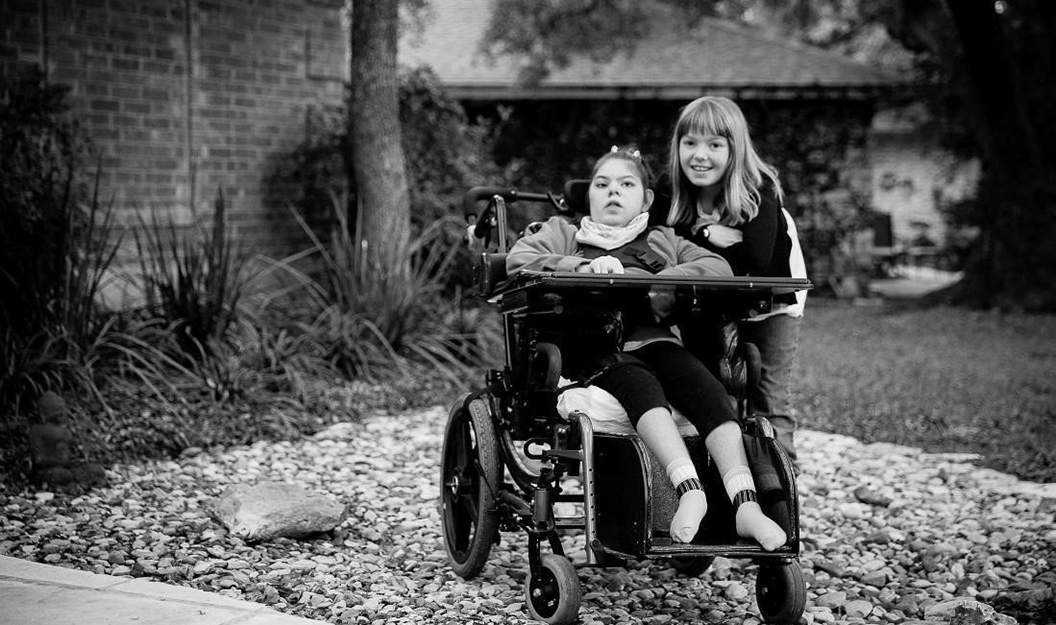The burden on working moms must not be carried alone; here’s how we can help.
By Tamara Atkinson, Photos courtesy of Tamara Atkinson
Not long ago, I was working full time while managing provider care for Savannah, my special needs daughter, and Ruby, my typically developing daughter. It feels like yesterday, and I can still recall the stress of trying to balance it all.
This summer, Ruby will finish out her freshman year of college. As she was approaching high school graduation and I prepared to shepherd her into the “real” world, I had done a lot of reflecting on her educational trajectory and how early childhood education played a significant role in our lives.
I’ve watched Ruby’s journey since she started early childhood education at just 6 weeks old. I still feel the heartache of putting my baby in someone else’s hands, hoping they’d provide the best possible care and education for her. Now I can take a step back and look with pride, relief and gratitude for the care and education that Ruby received to help her develop and grow.
But no matter how intelligent or driven Ruby is, the availability of financial assistance has been a significant factor in her post-secondary pathway, just as it was for her early education.
Think about it: For a family that wants the best learning experience for their child—without feeling the weight of financial burdens—assistance for early childhood education is no less significant than support for post-secondary education.
An investment in early education is fundamental to the future success of children and parents. The child receives the care and education to reach their fullest potential and the parent(s) are able to work and further their own education.
The burden on working mothers is real, so here’s a much-needed reality check.
A substantial number of women support themselves and their families by working in low-wage jobs. Before COVID, nearly half of all working women worked in jobs paying low wages. The share of workers earning low wages is higher among Black women (54%) and Hispanic or Latina women (64%) than among white women (40%).
We also know the pandemic is associated with an increase in gender disparities in the labor market. Women who had no education beyond high school exited the workforce in far greater numbers than educated men and women. Working mothers without access to affordable child care experienced additional hardships during the pandemic, trying to be a child’s teacher and caregiver while holding down a job (if they were fortunate enough to work remotely). Mental health effects on caregivers and young children, in particular, were also devastating during the pandemic.
The good news is that working parents and mothers don’t have to do it all alone. Workforce Solutions Capital Area ensures affordable child care services are available. We also support child care providers in achieving higher-quality certifications.
In 2022, 5,470 children received child care scholarships through Workforce Solutions Capital Area. Here’s the impact: Parents who receive child care assistance from Workforce Solutions see an average increase in earnings of over $6,000 per year.
With that said, I propose two actions we can all take to improve access to the kind of early childhood education that benefited my daughter, Ruby.
- As a society, we must view investing in early childhood education as no different than investing in post-secondary education. There are ways we all can invest in early education for a child who may grow up to be your neighbor, doctor or children’s school teacher.
- As a society, we must understand that mothers are doing the best that they can. A child in a low-income household doesn’t equate to receiving poor parenting. If a mother can’t give her children everything middle- and upper-class parents can, this doesn’t mean she loves her children any less.
Collectively, we can and must show more grace and kindness toward working mothers, as we’ve certainly all had moments where we needed a helping hand. Workforce Solutions Capital Area recognizes the challenges caregivers face—mentally and financially—and we strive to connect caregivers to the right resources for child care assistance.

As a mother and an employer, I see this as some of the most important work we do at Workforce Solutions Capital Area to ensure the sustainability of our future workforce.

